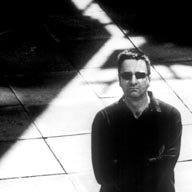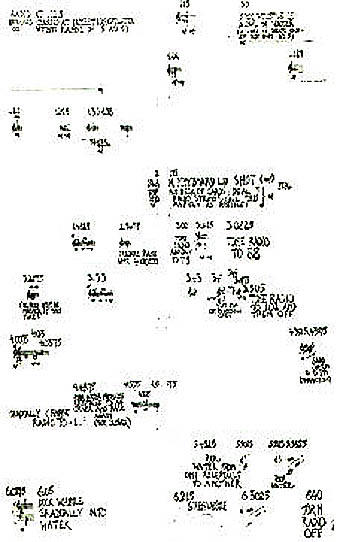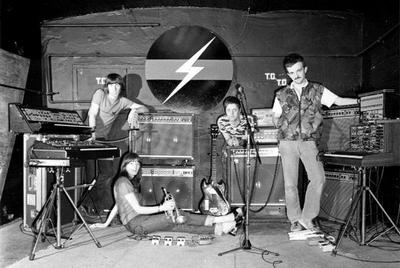July 01, 2004
THOSE WERE THE FACTS. WHAT THEY CREATED WAS THE FICTION.

Marcello's also right about the Paul Morley Vox Pop documentary. Everyone should check this out while it's still online (for the next six days I think).
The documentary takes almost exactly the same journey he plotted in Words and Music, but much more engagingly. Partly this is due to the materiality of the sounds: on the radio, the journey has a physicality that it lacks on the page.
Morley's notion that there are alternative histories of rock - not imaginary histories, but histories equally as valid as the official, well-worn join-the-dots road stretching from the Beatles to Radiohead ('the teenybop avant-garde', PM claims) - this notion is immediately liberatory.

Things didn't have to end up here (=The White Stripes). In fact, and more importantly, in fiction, things never do end up anywhere. Everything is always in the middle.
Morley is well aware of the power of fiction, of fictional histories, the hyperstitional force of sonic fictions. The negative magic of the blues and Beatles ur-myth resides in its power to keep on (re)producing music that fits in with the template (thereby reproducing the myth itself).
Morley's alt.history turns out to be a profusion of histories:
Cage===> Stockhausen====> Can ====> Kraftwerk ====> Moroder ====>Kylie
VU ====> Eno ====> Bowie ====> Destiny's Child
etc., etc.
Morley demonstrates, without stooping to make the point explicit, what's so laughable about the NME calling what they are championing 'art rock'. If Radiohead are the teenybop avant-garde, Franz Ferdinand must be the Student Union Josef K. As someone who took the social journey across the tracks (with sound his great educator), Morley keeps faith with the old artschool dream of not only reconciling high-art with pop, but of discovering a deep and irreducible complicity between them. PROLE ART THREAT!
One of many fascinating observations by one of the many fascinating companions Morley takes with him on (this version of) the journey. Peter Hammill: the best music, the best art, can, no must, be both serious and humorous. And yet if you look at the most populist PapPop today, it's so po-faced. (Is there anything more po-faced than a boyband ballad?)
Incidentally another Morley nugget I turned up whilst googling for a PM image: this questionnaire about his reading preferences.
Posted by mark at July 1, 2004 01:22 AM | TrackBackIs it just me, or is there a hint of John Cage's prepared piano in Brittney's current mushfest?
Posted by: bruce at July 1, 2004 10:13 AMI can't decide whether this Cage begat Can begat Kylie begat Yeshua etc etc thing is more in line with the Bloom 'Anxiety of Influence' thesis, or just a pop version of the 'Six degrees of Kevin Bacon' game that was popular about 5 years ago. Can you get from Schumann to James Brown in fewer than 6 moves?
Posted by: Philip at July 1, 2004 11:10 AMEnjoyed the programme (and even 'Words & Music'), but then I'm a long-time Morley fan. Some of his attachments are questionable - never could get it with New Order - and he seems to know nowt about dance music (808 State?!). Re: Radiohead, I'm curious why he dismisses them as cod-avant. I'm not sure they're just Coldplay/pretty tunes with appropriated 'avant' add-ons. I think they're serious. But - yes - they fail the Hammill test. Can't remember Cabaret Voltaire being a bucket of laffs tho', nor Sylvian. Maybe it's cos Radiohead ain't PROLE? It does all seems to come too easy to them, somehow.
Posted by: peter at July 2, 2004 12:03 PM